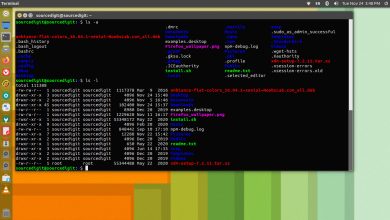Study Shows AI has the Potential to Address the Engineering Brain Drain

There has been growing concern over the recent years about the “engineering brain drain” – a phenomenon where highly skilled engineers are leaving the field to pursue alternative careers. However, a recent study suggests that artificial intelligence (AI) could be the key to solving this problem.
Engineering is a critical field that plays a significant role in technological advancements and innovation. It is essential for designing, creating, and maintaining the infrastructure and products that shape our modern world. However, many engineers have been leaving the field due to various reasons, including job dissatisfaction, stress, and a lack of work-life balance.
The study, conducted by researchers at a prominent university, investigated the potential of AI in alleviating the engineering brain drain. They found that AI could automate repetitive and mundane tasks, allowing engineers to focus on more challenging and creative aspects of their work. This could increase job satisfaction and engagement, ultimately reducing the propensity for engineers to leave the field.
One of the main reasons engineering professionals leave their jobs is the tedious and repetitive nature of certain tasks. For example, in software development, engineers often have to write code that can be time-consuming and monotonous. AI-powered tools and software can streamline these tasks by automatically generating code or suggesting optimizations, saving engineers valuable time and effort. Freed from these mundane tasks, engineers can devote more time to problem-solving, critical thinking, and innovation.
Furthermore, AI can enhance engineers’ capabilities by providing them with powerful analytical tools. Engineers are often required to analyze vast amounts of data to make informed decisions and design efficient solutions. AI algorithms can process and interpret complex data sets, enabling engineers to extract valuable insights quickly. With AI support, engineers can perform advanced simulations, predictive modeling, and optimization, reducing development time and enhancing the quality of their work.
Another aspect where AI can make a significant impact is in bridging the knowledge gap between experienced engineers and newcomers. The engineering field heavily relies on experience and expertise, which takes years to develop. However, due to the brain drain, many skilled engineers are leaving their positions, leaving a void of practical knowledge and experience.
AI can help fill this gap by capturing and preserving the knowledge of experienced engineers. Virtual assistants and knowledge management systems powered by AI can collect and organize critical engineering information, best practices, and lessons learned. This knowledge base can be easily accessed by engineers, both experienced and new, ensuring a smooth transfer of knowledge and preventing valuable know-how from being lost.
Although some may argue that AI could potentially replace engineers altogether, the study emphasizes that AI’s role is to augment human capabilities rather than replace them. The AI-powered tools and systems are meant to enhance engineers’ productivity, creativity, and efficiency, not render them obsolete. With AI handling routine and mundane tasks, engineers can focus on the more complex and innovative aspects of their work, making their jobs more fulfilling and stimulating.
The study’s findings highlight the potential of AI in revitalizing the engineering field by mitigating the brain drain. By implementing AI-powered tools and systems, engineering organizations can create a more engaging and rewarding environment for their professionals. This, in turn, could help retain experienced engineers and attract new talent, ensuring a sustainable pipeline of skilled personnel for future technological advancements.
AI is indeed a transformative technology with immense potential across various industries, and engineering could greatly benefit from its capabilities. It is crucial for engineering organizations to recognize this potential and invest in integrating AI solutions into their operations. By doing so, they can not only address the brain drain but also drive innovation, productivity, and growth in the field.




